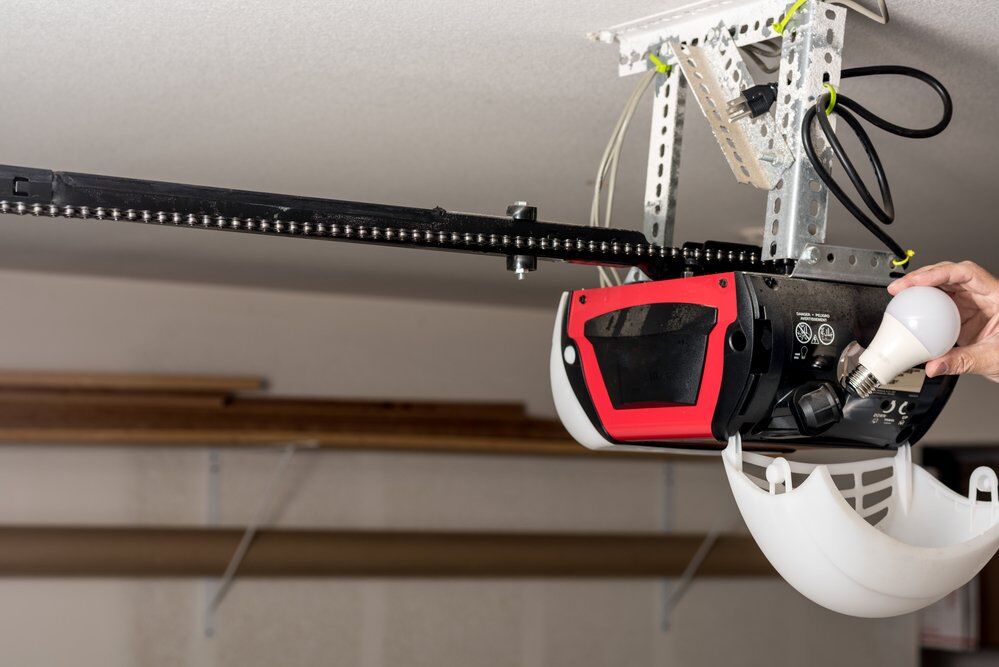Is your garage the last room you think about when considering room utility and design? Probably. So it is quite likely you never really think about your garage door opener either. But the moment it breaks, that paradigm changes. What will you do? You need to know how to pick a garage door opener.
Don’t be tempted into extremes. The wisest decision may not be impulse-buying the most cost effective garage door opener. What if it breaks right after the warranty runs out? Conversely, you might not need the most technologically advanced, Wi-Fi-enabled, high-horsepower garage door opener. There are simply more factors to consider when you purchase a new machine.
If you are like most homeowners out there, you use you garage every day to enter your home. How many entries is that? According to one estimate, 1,500 times. This makes your garage door opener one of the critical components of your home, yet it is probably the last thing on your mind in any given moment. By choosing a garage door opener with the right features and horsepower, you ensure smooth functionality, constant reliability, and a long-term life.
Assessing Garage Door Opener Horsepower
If the garage door opener is one of the most important permanent machines in your house, then the motor it houses is even more important. The motor built into the machine is responsible for lifting and lowering the door when you need, every time you need. The question now is, how do you make that determination? Assess the following:
- Size and Weight: Not every garage door is the same size. Your garage door may be covering a single or double opening. If you purchase a garage door opener that has insufficient horsepower for the job, it is going to burn out prematurely, or possibly fail during operation.
- Lifespan: Always remember that garage door openers with limited power tend to be replaced sooner. If you just happen to have a tiny garage door, okay, but you may need more horsepower than you think.
- Components: You don’t just have a garage door to consider when making this decision. There are also springs, cables, rollers, and tracks to consider. These components all place strain on the garage door and the opener. It is important to understand what the motor can and can’t handle.
Now that you have assessed your garage door and its components, you need to know what to choose from. Garage door openers are horsepower rated. Typical residential garage door openers include the following speeds:
- 1/3 HP
- 1/2 HP
- 3/4 HP
As you might imagine, 1/3 HP is best for lightweight garage doors in a single configuration. Usually these would be steel or aluminum doors and they might not be insulated. Most people use 1/2 HP, as it has the capacity to raise and lower single and double garage doors between eight and twelve feet wide. You can also expect 1/2 HP to handle doors of almost any material. Save 3/4 HP for big, ornate wooden doors, or near-industrial or commercial capacity doors.
What You Need in a Garage Door Opener
There are many considerations. How close is your garage to other bedrooms in the house or living spaces? If your garage is directly below a bedroom, you may want to go with a belt or direct drive option, as they offer the quietest operation. Direct drive garage openers use a stationary chain on a steel rail and need very little maintenance. Belt drive openers use a steel-reinforced rubber belt for smooth, quiet operation. In some cases, they may need more regular maintenance.
You can also choose between screw-driven and wall-mounted garage door openers. Wall-mounted garage door openers are highly specialized because they free overhead space and minimize vibration. They are also more expensive then more traditional opener varieties.
There are also plenty of special features to choose from. You can choose the following features, depending on the type of opener you choose:
- Battery Backup: For when you need reserve power. In some states, battery power is required by law.
- Keyless Entry: Nearly all modern garage door openers offer keyless entry.
- Code Security: This option prevents accidental openings by nearby remotes. It also makes it more difficult for intruders to gain access.
- Safety Sensors: Safety sensors to trigger the door are also important and are key components on many of today’s modern garage doors.
- Overhead Lights: Designed to activate when the garage door opener is turned on, overhead lights are important for those returning at night.
- Extension Kits: Is your garage door taller than standard? Extension kits can be purchased to make up the difference.
Smart garage door openers also come in many varieties. Whether you want remote access and monitoring, smart home integration, or modular accessories, you can find garage door openers that cover it all.
Can You Install It Yourself?
The average lifespan of a garage door can be as much as thirty years if you take good care of it. For an automatic garage door opener, you are looking at 10 – 12 years. The question is, will you get all the years out of it? And furthermore, can you install it yourself?
If you are a handyman, it is possible to install a garage door opener yourself. The job would normally take around 3 to 4 hours and you might need the help of an electrician. Because installing an opener is not a simple job, we recommend calling the professionals at Prestige Door.
If your garage door is shaking, rattling, or rolling all wrong, it may be your garage door opener. Fortunately, we can help on picking a new one out and installing it. Call us today to learn more!

